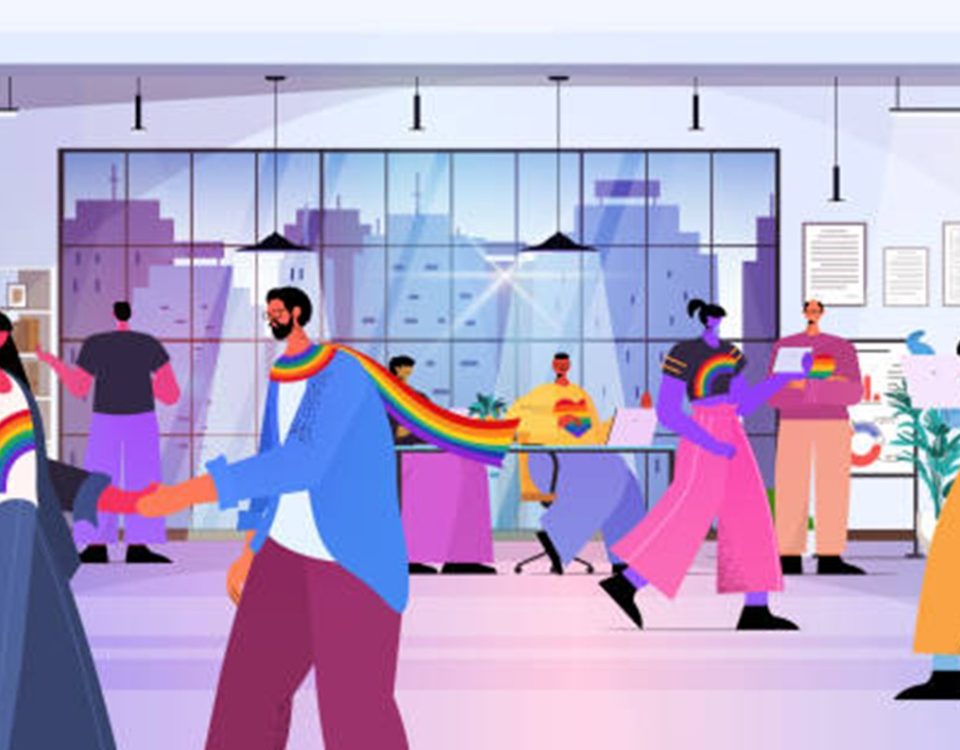- Hyderally & Associates P.C | Employment Lawyers NJ, NY
- (973) 509-8500
- tyh@employmentlit.com
There’s No Denying It Anymore: Systemic Racism Still Occurs in the Workplace Today
Issues with Employees Returning to Work in Montclair, NJ.
June 25, 2020Great News for New Jersey Employees – Major Expansions in the Paid Family Leave Program
July 4, 2020By: Chantal N. Guerriero, Esq. and Ty Hyderally, Esq.
The devastating effects of both covert and overt racism have swept the nation into a call for action and change. Moreover, the country’s COVID-19 pandemic has presented a unique and unprecedented opportunity for the masses to educate themselves on the pervasive issues of systemic racism and oppression, discuss those issues, and in turn take action. In turn, much focus has been placed on examining the various corporate structures which have continued to quietly breed racism within the workplace. With hope, though, the ability to bring to light and recognize the fact that racial discrimination has not gone anywhere may empower those who have unfortunately faced in in various settings, including the workplace, to speak up.
Recently, allegations against New York-based Bon Appetit Magazine, as well as its parent company, CondeNast, surfaced after Assistant Food Editor, Sohla El-Waylly (“Waylly”), posted a statement revealing the magazine’s covertly racist tactics against Black, Indigenous, And People Of Color (BIPOC) to her Instagram. Waylly shared several areas in which white employees of the magazine routinely received preferential treatment. For example, Waylly wrote that only white employees were paid for video appearances on the magazine’s popular YouTube channel. Conversely, BIPOC employees were not paid for such appearances. Further, Waylly revealed that Bon Appetit routinely demanded that its BIPOC employees join video appearances and photo ops to make the magazine appear more ethnically inclusive and diverse to the public. However, Waylly shared that when you looked at the magazine’s actual employee structure, it did not reflect such diversity and inclusion.
While Waylly’s post itself became viral, what prompted it, was the surfacing of a photo of Adam Rapoport (“Rapoport”), the magazine’s Editor-in-Chief, dressed as a Puerto Rican for Halloween. Rapoport resigned shortly after the photo surfaced, but the photo was only the tip of the iceberg. In the wake of his resignation, Rapoport was accused by magazine employees of exhibiting microaggressions as well as engaging in daily implicit bias against BIPOC and making generalizations about BIPOC. Further, Rapoport was accused of showing preferential treatment for white employees. Rapoport’s not-so-subtle racial biases came to light as the nation began to more deeply understand the concepts of systemic racism, microaggressions, and implicit bias.
Microaggressions, in particular, have been heavily scrutinized as a powerful tool utilized against minorities to try to subjugate them to lesser roles in the workplace. Examples of the supervisor who made a comment that he thought most black people were criminals and then rested upon this belief to making hiring and promotion decisions has been correctly looked at to reveal the divisive impact of racism in the workplace.
As we are all too aware, unfortunately, these practices occur every day, in a multitude of work settings. Those who fall victim to it often feel powerless to stop it or hold offenders accountable. Moreover, these every day biases occur so frequently that they are often made a part of everyday office talk, to the point where recognizing them and speaking out against them can run counter to the office culture. There are protective laws in place, however, which insulate employees from retaliation by their employers when they speak out against racist practices. For example, the New Jersey Conscientious Employee Protection Act, N.J. Stat. § 34:19-1, et. seq. also known as “CEPA” or the “Whistleblower Act” makes it unlawful for employers to retaliate against employees for objecting to what the employee reasonably believes is a violation of the law or public policy. In addition, the New Jersey Law Against Discrimination (the “LAD”), N.J.S.A. 10:5-1 et seq., makes it unlawful for employers to discriminate or retaliate against employees based on a protected category, like race. Further, the LAD protects employees from racial discrimination in the workplace. Thus, employees facing racial bias and discrimination, whether implicit or explicit, in the workplace or facing retaliation for complaining about such practices, can rest assured that race discrimination in the workplace is not tolerated in the eyes of the law.
This blog is for informational purposes only. It does not constitute legal advice, and may not reasonably be relied upon as such. If you face a legal issue, you should consult a qualified attorney for independent legal advice with regard to your particular set of facts. This blog may constitute attorney advertising. This blog is not intended to communicate with anyone in a state or other jurisdiction where such a blog may fail to comply with all laws and ethical rules of that state of jurisdiction.

